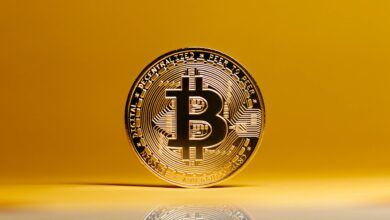Japan’s Monumental Shift: Exiting Negative Interest Rates
The Bank of Japan (BOJ) has recently raised its interest rates from negative to positive. This move comes after 17 years and ends Japan’s experience with negative interest rates that began in 2016. It also reflects a significant change in how the world works towards economic growth and inflation.
A Bold Experiment Comes to an End
In the years following the financial crisis, central banks around the globe faced tough challenges and responded by using new methods to kickstart economies. One of these was negative interest rates, where banks were charged for keeping cash instead of lending it out. This was meant to boost spending and investments as a way to fight slow growth. But as we entered the 2020s, there’s been a shift. Now inflation is on everyone’s minds more than deflation.
The main worry now is inflation, which makes negative interest rates less important. Some even consider them old news.
- Changing the Rate – The BOJ’s new head, Kazuo Ueda, gave the policy rate a tiny boost, from below zero up to between 0% and 0.1%. It’s a careful but meaningful step back into positive numbers.
- Backing Off – With this uptick in rates comes a pullback of other economic boosts. They stopped buying assets and controlling how much long-term bonds can earn, showing they’re really changing course.
- The Economy Now – This turn is all because Japan’s economy isn’t what it used to be. Nowadays, folks are getting paid more and prices are going up, unlike before when falling prices were the big headache.
What We Got Out of Negative Rates
Dipping into negative interest was a bit iffy for some. It was meant to get people spending more money but wound up as a thorn in the side for savers and banks. And it created quite a stir about where there’s a lot of debate about how effective they were. Some critics, who used to work for the BOJ, think that the good points of the policy weren’t very clear and that the costs both in money and society were pretty steep.
“Negative interest rate policies didn’t really pan out in several places including Japan,” notes Takahide Kiuchi as he looks back on how controversial these policies were. That same feeling is shared by other big economies. Take the U.S. Federal Reserve, for example they decided not to go for negative rates even when times were tough during economic slumps and the COVID-19 health crisis.
Reactions and Implications
When Japan started to step away from negative rates, people had all sorts of different reactions. The financial markets kind of tiptoed around with a hopeful attitude, seeing it as a positive signal for Japan’s financial comeback. Yet, this change isn’t just a simple matter. it has layers and reaches far into different areas like how regular people save money or the worldwide money scene.
- Domestic Impact, For those in Japan who are trying to save up or invest their cash, going back to normal interest rates could be significant news. Banks raising their interest rates gives us a bit of hope for better profits on savings and investments. Though the increase is small, it’s still something.
- Around the World, In Japan, a change in how they handle money reflects a global trend. After the pandemic, central banks everywhere are rethinking their strategies, taking into account what they’ve learned over ten years. They’re trying to manage rising prices while also trying to keep their economies growing in this new reality.
What’s Next
The Bank of Japan (BOJ) is starting a different phase and people around the world are paying close attention. Japan getting rid of negative interest rates doesn’t just mean they’re moving on from one policy. it points to a bigger shift as countries try to make their monetary policies more standard again. With the main focus on controlling inflation nowadays, central banks are changing up their game plans. This marks the end of one of less traditional periods in economic history.
This shift brings good things and tough stuff too! For Japan, going back to positive rates shows that the country’s economy is strong and adaptable.
The bank’s ability to adjust is important. But this also shines a light on the ongoing argument over the best methods for handling economic expansion and stability.





